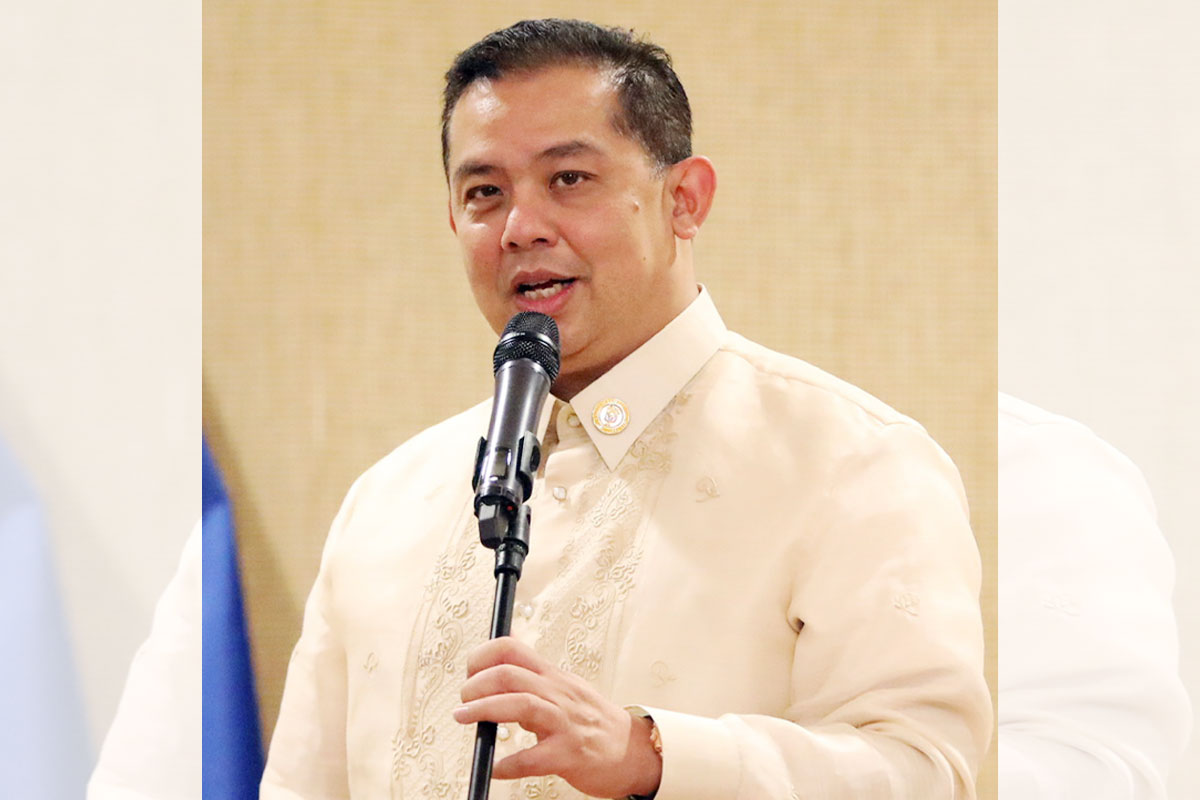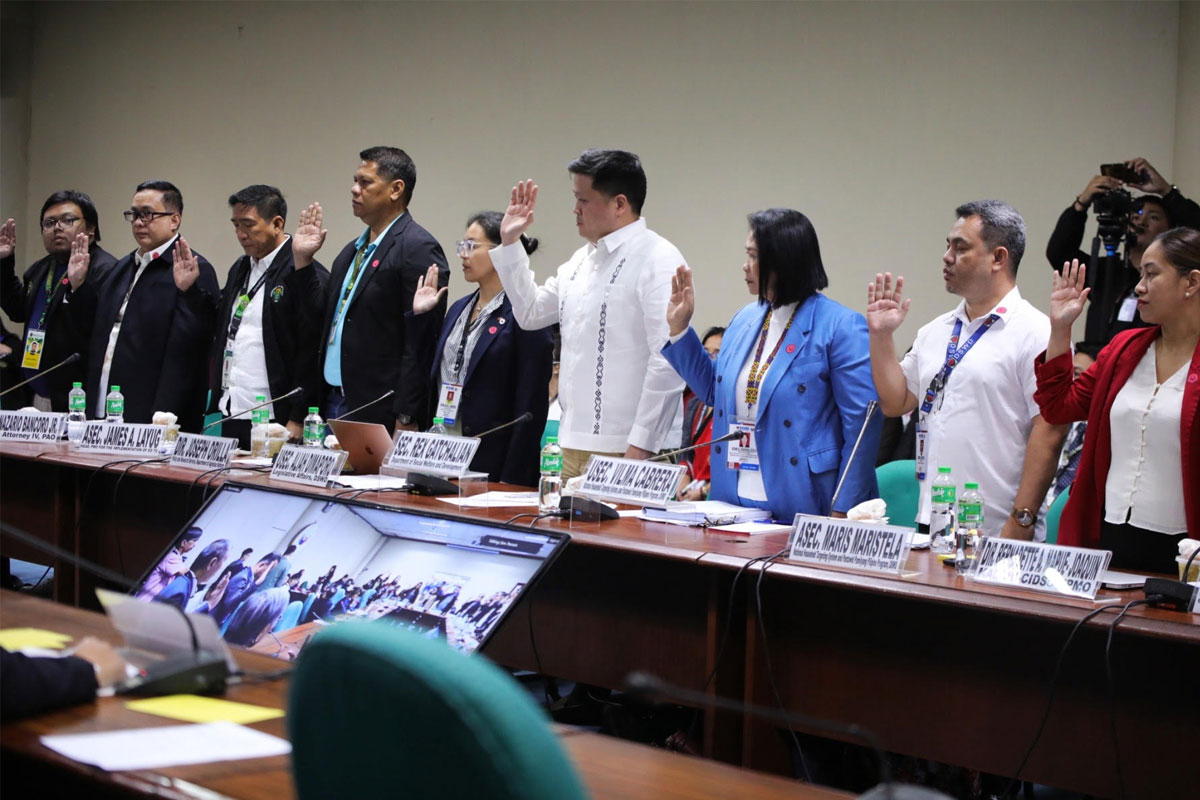 Speaker Martin G. Romualdez has assured his colleagues and the nation that the House,in considering and approving the 2023 national budget,would “effectively respond to the needs of the people,especially in addressing the continued impact of the health crisis,and in creating more jobs and ensuring food security.” Photo by VER NOVENO
Speaker Martin G. Romualdez has assured his colleagues and the nation that the House,in considering and approving the 2023 national budget,would “effectively respond to the needs of the people,especially in addressing the continued impact of the health crisis,and in creating more jobs and ensuring food security.” Photo by VER NOVENO
Romualdez: Budget Ok to create more jobs
Ensure food security
THE House of Representatives starts hearings Friday on the proposed P5.268-trillion 2023 “Agenda for Prosperity” national budget.
Deliberations on the first full-year budget proposal of President Ferdinand “Bongbong” Marcos Jr. begins with a briefing to be given by members of the Development Budget Coordination Committee (DBCC) on the state of the economy and the macro-economic parameters the executive branch used in putting together next year’s spending program.
To be briefed are House leaders led by Speaker Martin Romualdez and members of the committee on appropriations.
To do the briefing are Budget Secretary Amenah Pangandaman, Finance Secretary Benjamin Diokno, Secretary Arsenio Balisacan of the National Economic and Development Authority, and Gov. Felipe Medalla of the Bangko Sentral ng Pilipinas.
The House launches the budget deliberation process four days after the President, through Budget Secretary Pangandaman, presented the proposed outlay to Congress.
Speaker Romualdez has assured his colleagues and the nation that the House, in considering and approving the 2023 national budget, would “effectively respond to the needs of the people, especially in addressing the continued impact of the health crisis, and in creating more jobs and ensuring food security.”
He also said the budget process would be transparent.
“The budget will be product of the entire House of Representatives, where the majority will listen to the minority’s concerns and of source, we as the representatives of the people, will also be attuned to their needs. This budget basically represents the hope of the future and the agenda for prosperity in the country this coming 2023,” Romualdez said.
He said the House would make sure that “every centavo of the national budget will be spent wisely to implement programs that would save lives, protect communities and make our economy strong and more agile.”
The Speaker added that the House would approve the proposed budget on or before September 30.
Congress is scheduled to go on its first recess on October 1. The break will last up to November 6.
According to Marikina City Rep. Stella Quimbo, senior vice chairperson of the committee on appropriations, the panel chaired by Ako Bicol Party-list Rep. Zaldy Co is aiming to finish its hearings by September 16.
That would give the House two weeks for plenary discussions and approval of the proposed 2023 budget, she said.
Next year’s outlay is 4.9 percent higher or P244 billion more than this year’s P5.024 trillion.
Based on budget documents, the spending proposal targets to implement an eight-point agenda: food security, improved transportation, affordable and clean energy, social services, health care, face-to-face education, bureaucratic efficiency, and sound fiscal management.
“The agriculture sector will receive a substantial increase of 39.2 percent, with a total proposed budget of P184.1 billion, to ensure food security and agricultural productivity,” according to the DBM.
It said a total of P1.2 trillion is allocated for “shovel-ready” infrastructure projects under the Marcos administration’s Build Better More Program, “to propel growth in agriculture, trade and tourism sectors and eventually reduce transportation and logistics costs.”
The education sector will get the highest allocation of P852.8 billion, while the health sector will receive P296.3 billion.



















